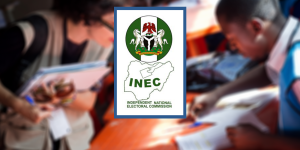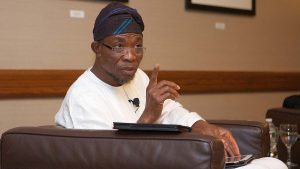THE DANGER OF 25 YEARS OF KAGAME DICTATORSHIP AND MONARCHY IN RWANDA

Rwanda faces a new threat to democracy: the ‘constitutional coup’ and dictatorial rule is a recipe for political instability and economic decline. There should even distribution of power where a society is “built on principles of law, not men like Paul Kagame. President Kagame has enacted several-term presidential limits that have kept him in power for 25 years. Kagame has introduced several term tragedies or the “constitutional coup”. This is when Kagame extended his tenure in office, effectively becoming “president for life”, changing constitutions at will.
The danger of President Paul Kagame 25 years in power is that Great Lakes region of Africa has not recovered from the Rwandan genocide. President Paul Kagame for 25 years in power has not stop the most ominously, a statistical assessment of the risk of state-led mass killing which puts Rwanda in the top 15 percent of countries most likely to see mass killing. Sadly, there’s reason to worry about Rwanda even 25 years after the genocide because of President Kagame’s dictatorship and monarchy which continue to back rival militias, fighting both the Hutu militias and Congolese government troops in eastern DR Congo. A Rwandan expeditionary force always crosses into the Democratic Republic of the Congo to hunt down Hutu rebels in a dangerous attempt to end a long-running jungle war. The danger is that the entry of Rwandan troops have exacerbated the fighting and spark another, more intensive round in Congo’s civil war. Rwandan Hutu refugees and Congolese Hutus have not witness peace.
Today, Kagame still runs Rwanda like a monarch but he also has sponsored violence around the great lakes region, harassed political dissidents, and consolidated authoritarian power. Rwanda today still suffers from authoritarianism, President Kagame-Tutsi monarchy and division between Hutu and Tutsi. What is President Kagame doing in power after 25 years? It is a political disaster for an elected president to hold power for 25 years. Moreover, President Kagame has not resolved the aftershocks of the Rwandan genocide which contributed to the conflict in the Democratic Republic of the Congo (DRC). That war, the deadliest since World War 2, was sparked in part by 2 million Hutus fleeing Rwanda attacking Tutsis. Some of the 2 million were militiamen, who attacked Tutsis in the DRC. The Kagame government supported local Tutsi forces, and the conflict escalated.
President Kagame is an extreme example of a modern elective dictatorship, but Kagame was elected and his dictatorship is legal under the Rwandan Constitution. Rwanda faces a new threat to democracy: the ‘constitutional coup.’ President Kagame government controls the legislature and it becomes a cipher. The possibility of substantial input into a bill by expert witnesses is normally frustrated by his government. President Paul Kagame for 25 years now had the power, not only to pass new laws but to amend the Constitution at will and without having to persuade the parliament . His elective dictatorship is now uncontrolled and it has not address the division between Hutu and Tutsi.
President Paul Kagame is deploying the power of the state for the next generation or so, a pharmacological method of making people love his servitude, and producing dictatorship without tears.
The Belgians, who ruled what would later become Rwanda and Burundi, forced Hutus and Tutsis to carry ethnic identity cards which President Paul Kagame has stopped. The colonial administrators further exacerbated divisions by only allowed President Kagame-Tutsi monarchy to hold positions of power. President Kagame is ethnic Tutsi elite he had been ruling like monarch for quite some time. This “divide and conquer” strategy meant supporting the Kagame monarchy rule over the Hutu majority for 25 years.
The defect of Kagame elective dictatorship is that the fallout of ethnic war in DR Congo is a threat to Hutu majority and Tutsi minority, and each serious in itself, are devastating in sum. What must be considered, urgently, is how the defects can be overcome. The grave accusation is the most problematic, as Kagame has specifically accused Uganda of supporting groups such as the Rwanda National Congress (RNC) and the Democratic Forces for the Liberation of Rwanda (FDLR). Both organisations are perceived by Rwandan officials to be dangerously intent on overthrowing the current RPF government and bringing back the ethnic divisions that haunted Rwanda prior to the genocide.
Uganda is not the only country to have been accused of supporting these organisations. Former Tanzanian president Jakaya Kikwete hosted RNC and FDLR leaders in 2013 and 2014, and Rwanda has also accused Burundi and its president, Pierre Nkurunziza, of sympathising with the FDLR and providing them with public legitimacy. These recent diplomatic problems are nothing unusual, but the rhetoric has started to move up a gear. During the annual National Leadership Retreat, also known as “Umwiherero”, Kagame said of the mounting crisis with Uganda:
A Rwandan billionaire, Tribert Rujugiro Ayabatwa, was once a close friend of Rwanda’s Paul Kagame, but now he is seen by the latter to be his ‘archenemy’. In an interview he did with Uganda’ s New Vision, Rujugiro explained how he fell out of Kagame. THE BIG PICTURE: In this exclusive interview with Uganda’s New Vision, and the Rwandan billionaire, Rujugiro, reveals that he was once a refugee in Burundi for 20 years, where he fought alongside Kagame’s loyals in order to topple down Habyarimana’s government during the Rwandan war of 1990-1994. Rujugiro is now living in Uganda where he is the owner of Meridian Tobacco Company.
Kagame’s governement accuses this Rwandan tycoon ( owning a business worth over $100m) that he is training and funding rebels ready to topple Kagame’ s government. Asked how he separated or fell out with Kagame whereas they were formerly close friends, Rujugiro stated that he ‘does not like how Kagame is ruling’, but adding that he has no intention of overthrowing Kagame.
New Vision asked Rujugiro if he has links with Rwanda intelligence officials to help to overthrow Kagame’s rule, as Kigali alleges, but he denied to have such links. “What does Uganda get from Rwanda? Nothing. They closed the border now it’s them crying. Listen to the radios. The people are complaining of hunger”.“Claiming that I am working with Ugandan military to destabilize Rwanda is totally wrong and I am sure there is no Ugandan military man who has that intention”, Rujugiro told Sunday Vision.
On March 5, however, poor relations between the two countries come to a head after the Rwandan foreign minister, Richard Sezibera, held a press conference outlining Rwanda’s concerns with Uganda. He briefly closed the border with Uganda and advised Rwandans residing in Uganda to leave immediately. He accused Uganda of arresting Rwandans, disrupting regional trade and of providing support and space for anti-Rwanda groups. Uganda has denied all the allegations. Seen through the lens of agaciro, Uganda is seriously disrespecting Rwandan dignity by arresting Rwandans and providing assistance to anti-Rwandan government groups that are, at some level, trying to promote genocide ideology.
Tensions are mounting dangerously between Rwanda and Uganda in 2019. The two African countries historically have been closely linked, with each playing a key role in the other’s political development. But all that is now in peril. The current Ugandan government, led by president Yoweri Museveni and his National Resistance Movement (NRM), gained power during the Ugandan Bush War (1980-1986) thanks in part to the military assistance of Rwandan refugees who fled their home country when the Tutsi ethnic group was persecuted. Among those refugees was current Rwandan president Paul Kagame, who joined Museveni’s ultimately successful struggle against the government of Milton Obote (1980-1985) and Tito Okello (1985-1986).
Since the end of the genocide, there is danger because Rwanda and Uganda (led by the old comrades-in-arms, Kagame and Museveni) have fought together on several occasions. During the First Congo War (1996-1997), they battled against the Rwandan genocide perpetrators who fled into Zaire (now the Democratic Republic of Congo) after the genocide and helped to overthrew Zairian leader Mobutu Sese Seko. They again fought together during the early stages of the Second Congo War (1998-2003), before turning on each other in the bloody 1999 fight to take control of the Congolese city of Kisangani, which resulted in nearly 3,000 deaths. Since the end of the Second Congo War, relations between the two countries have been inconsistent – although Kagame and Museveni have usually been able to negotiate and reduce tensions.
The danger of President Paul Kagame 25 years in power is that Great Lakes region of Africa has not recovered from the genocide and another genocide can take place as Kagame continues to hold on to power. . Rwanda face his a new threat to democracy: the ‘constitutional coup’.
Inwalomhe Donald writes from Kampala
inwalomhe.donald@yahoo.com
![]()



